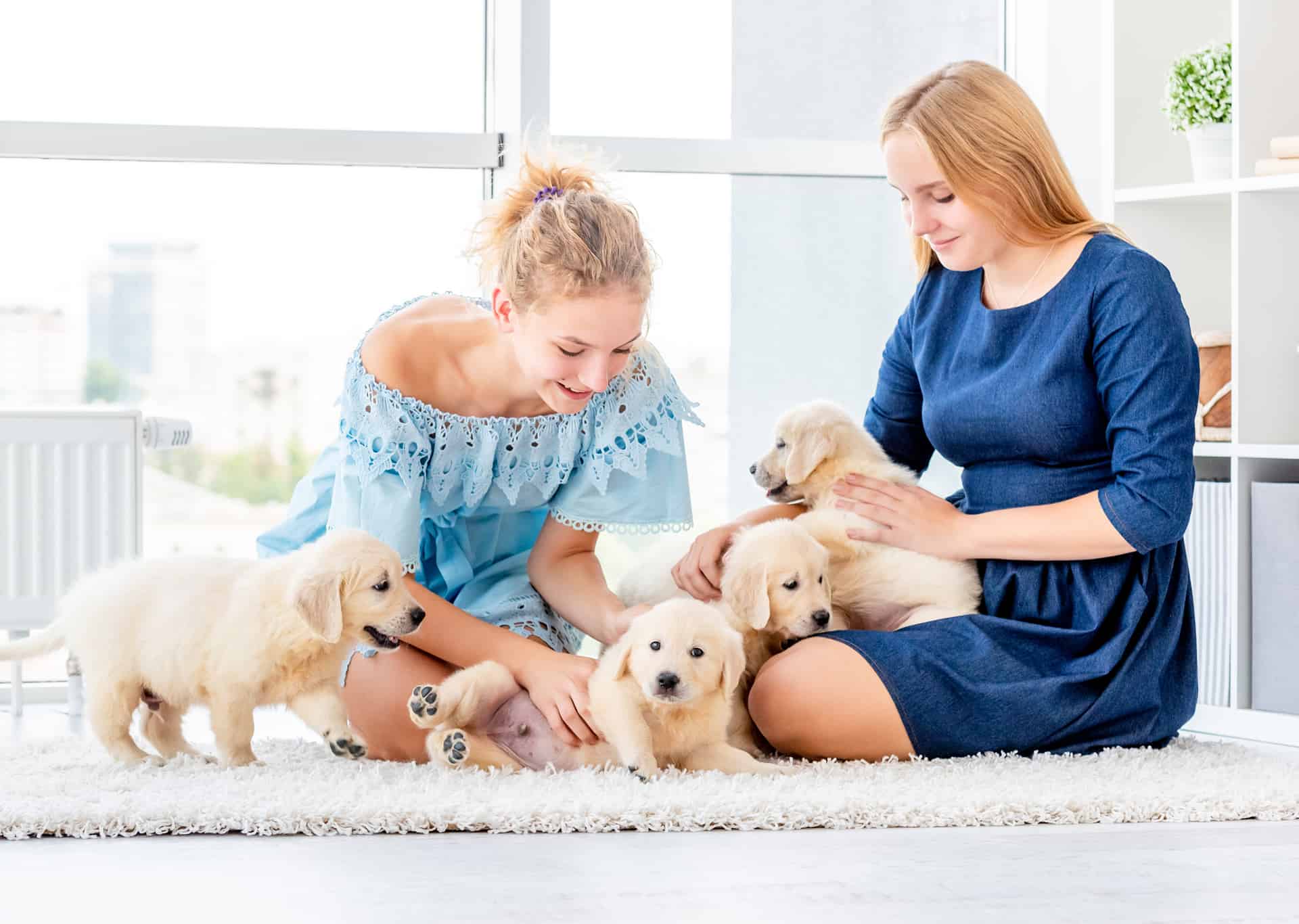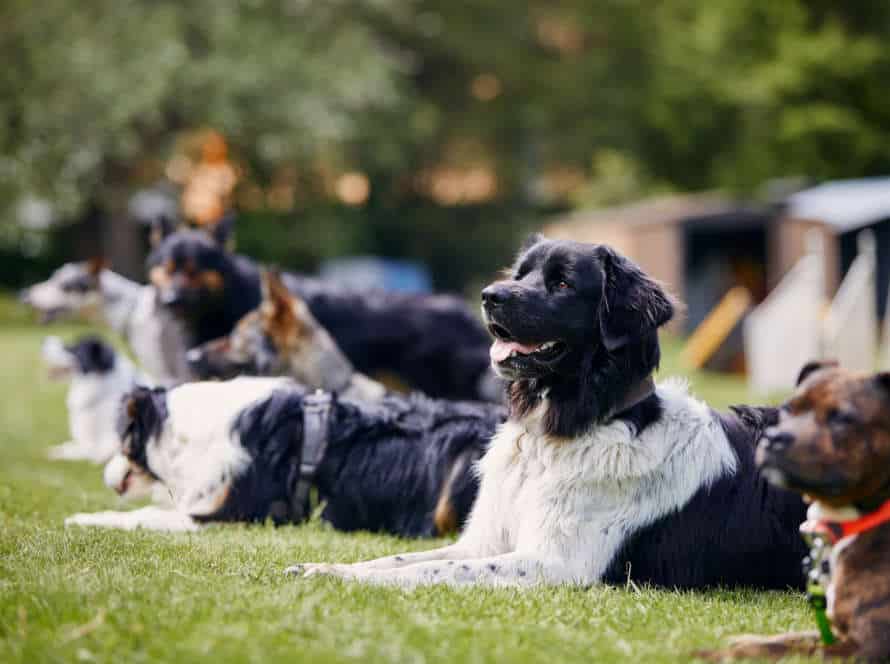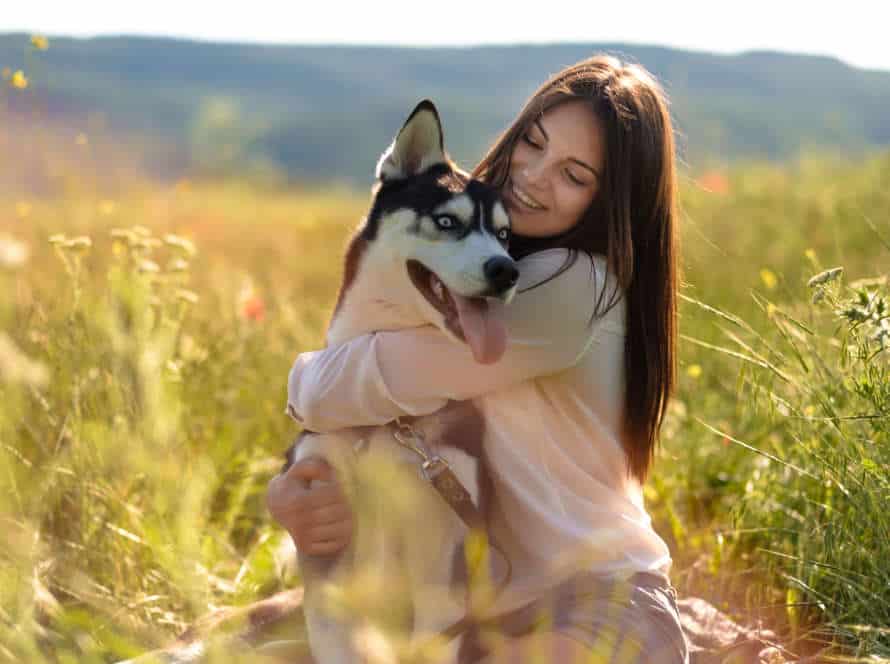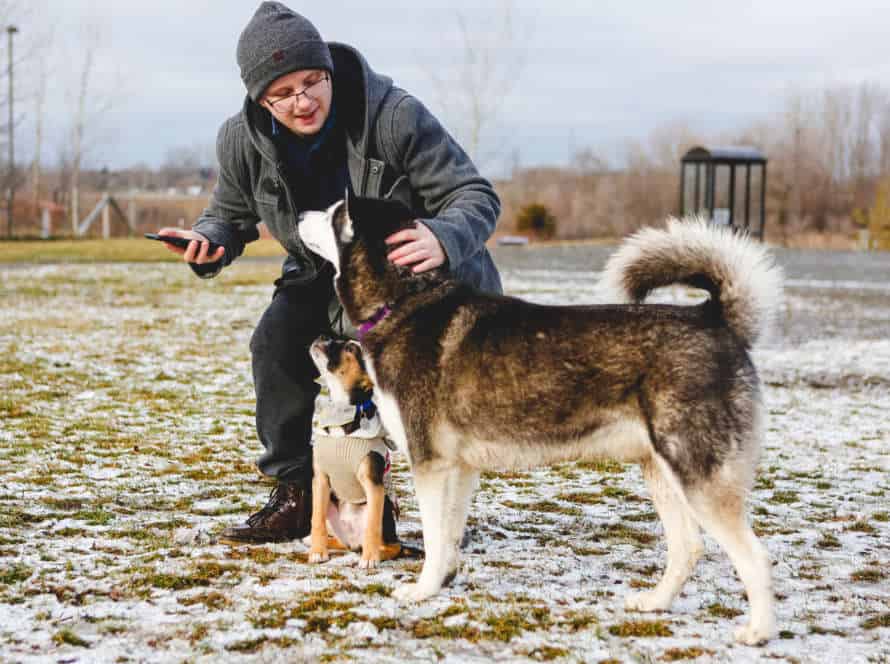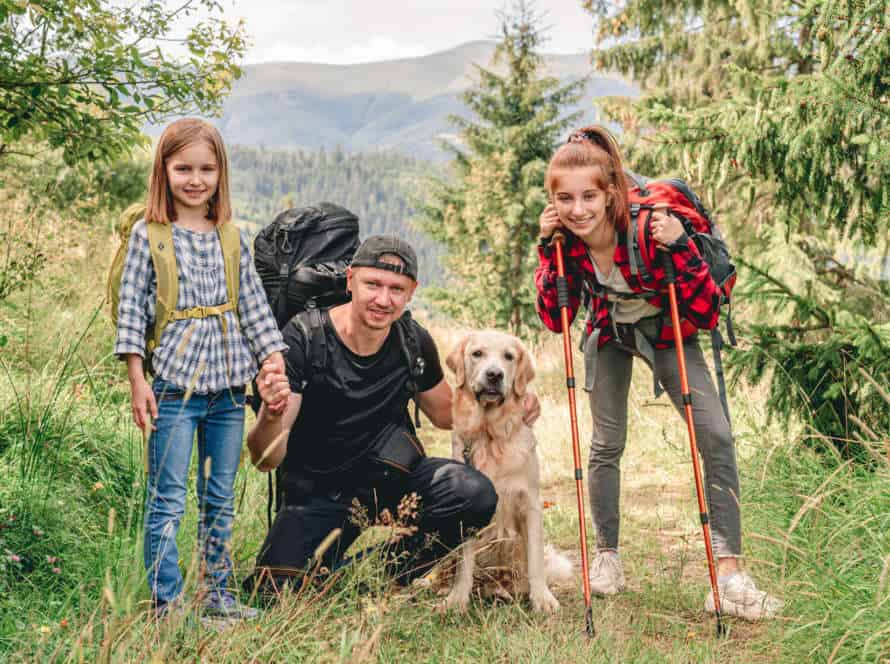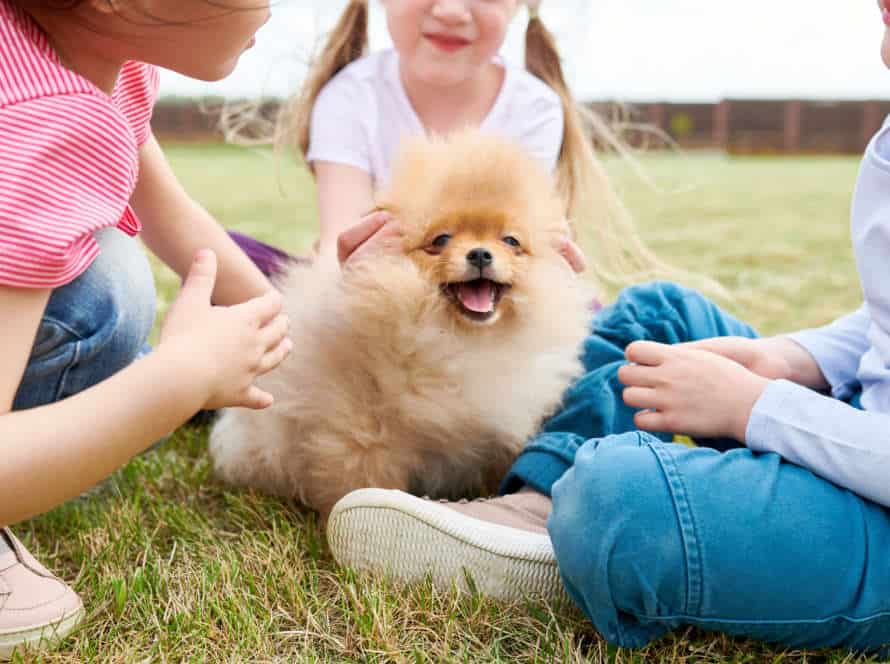Puppy Socialization Timeline: A Helpful Guide
The puppy socialization timeline helps you create a plan for socializing your pup from birth to adulthood. Here’s what the timeline looks like:
- Birth-3 Weeks: Pups still rely on mom. Daily handling helps them get used to human touch.
- 3-12 Weeks: Super important for socialization! Interact with other pups & people as much as possible. Also a great time to expose your pup to different sights, smells, & sounds.
- 12-18 Weeks: Pups become more cautious. Keep socializing & reinforcing positive behavior.
- 6 Months-1 Year: Adolescence – independence. Continue training & socializing to prevent bad habits.
- Adult: Socialization doesn’t stop. Keep exposing your dog to new experiences & people.
Following this timeline will help your pup grow into a confident adult dog.
The Critical Socialization Period
The “puppy window of opportunity” or the “critical socialization period” is the puppy’s socialization period. It’s vital to give the puppy positive experiences during this time. It will determine how it interacts with other people and animals for life.
Let’s examine when the puppy socialization timeline starts and the best ways to ensure it has positive experiences.
What is the critical socialization period?
The critical socialization period is a key time for puppies. It typically lasts from 3 to 14 weeks of age.
During this time, exposing your pup to new sights, sounds, people, and animals is vital. Prioritize socialization activities, such as puppy classes, playdates with calm dogs, and introducing them to different environments and stimuli.
Remember – socialization shouldn’t stop after this period. Keep introducing your dog to new experiences throughout their life. This will help them stay confident and adaptable.
When does the critical socialization period occur?
Puppies have a crucial socialization period between 3 and 14 weeks of age. During this timeframe, they should experience various people, sights, and sounds to become confident adults. Here’s a timeline to help:
- 3-5 weeks: They should be exposed to people, handling, and gentle sounds.
- 6-8 weeks: Expose them to new environments, surfaces, and objects.
- 8-10 weeks: Start puppy classes, and let them socialize with other puppies and people.
- 10-12 weeks: Keep socializing, and begin training commands.
- 12-14 weeks: Complete vaccinations and continue socializing and training. Pro Tip: Proper socializing during this period can stop behavioral issues and make sure your puppy is a well-adjusted dog.
Why is the critical socialization period important?
Puppies have a Critical Socialization Period. It is 3-14 weeks long. This period shapes their behaviour and temperament as adults.
Socialization is key. Without it, puppies can be fearful and aggressive.
Create a positive and safe environment for your puppy. Introduce them to people and animals. Expose them to sights, sounds and situations. This will help them become happy and well-adjusted adults.
Consult your vet for a socialization plan. Take into account breed, personality and health needs.
The First Week at Home
Welcome your pup home! Introduce ’em to their new environment. Get them used to people and other animals. Show ’em different sights. Here’s a guide to socializing your pup in their first week. Follow it for a happy, well-socialized dog.
Getting to know your new puppy
Bringing a puppy home can be both exciting and overwhelming! The 1st week is important for getting your pup used to its new home. Here’s a guide for the puppy socialization timeline for the 1st week:
Day 1-2: Guide your pup around. Show it where to eat/drink. Begin crate & leash training.
Day 3-4: Introduce it to new sights/sounds. Reward it for good behaviour!
Day 5-6: Play games & let it meet family/pets. Continue with socialization training.
Day 7: Take a break from training. Let pup rest & settle in. Avoid overstimulation & build a strong bond.
Patience & consistency are key for successful socialization. Soon, you & pup will have a strong & happy relationship!
Introducing your new puppy to family members and other pets
Introducing your new pup to family and other pets can be tough. But it’s key to make sure they’re happy and comfortable in their new home. Here’s a guide for the first week:
- Day 1: Let your pup explore and rest, drink, and eat as needed. Keep other pets and family away.
- Day 2: Introduce your pup to each family member one-by-one, in a calm setting. Pet them gently and reward them.
- Day 3: Start supervised interactions between pup and other pets, like cats and dogs. Keep it brief and reward good behaviour.
- Day 4 – 7: Keep increasing socialization and positive interactions. Supervise, reward good behaviour with treats and praise.
Pro Tip: Patience and consistency = successful puppy socialization!
Housebreaking and crate training
Housebreaking and crate training are key to helping your pup settle in. Crate training is especially useful. Here are some tips for successful crate training:
- Choose the right sized crate. Not too big, not too small.
- Make it a positive space. Use treats, toys and praises.
- Create a routine. Feeding, bathroom breaks, and crate time.
- Be patient. It takes time for pups to adjust. Reward good behavior and avoid punishment.
Weeks 2-4
Weeks 2-4: explore, socialize. It’s important to start good behaviors and positive reinforcement. Pups should meet people, animals and new environments – this helps their brains make positive connections and teaches them how to behave.
Exploring the world
Socialization is key to help a pup adjust and do well in its surroundings. By weeks 2-4, the puppy will start seeing, hearing, and playing with its littermates – the perfect time to start teaching it. Here’s a useful guide for what to focus on in weeks 2-4:
- Week 2: Show the pup different textures, surfaces, and temperatures. Think blankets, carpets, and warm and cold water.
- Week 3: Encourage your pup to explore new things, like toys and people. Guide it to handle things gently.
- Week 4: Take it outside the house – parks and city streets. Expose it to new noises, smells, and views.
Remember that socializing is an ongoing process. Keep it up as your pup grows. A tip: Remain patient, consistent, and reward good behavior. Avoid punishment-based methods.
Socializing with humans
Socializing with humans is key for a pup’s social life. In weeks 2-4 they’re developing cognitive skills and learning to interact. Here’s a guide:
- Week 2: Puppies are still blind and deaf, but their sense of smell is growing. Handle them gently and introduce them to smells like herbs and spices.
- Week 3: They’re starting to open their eyes and ears. Introduce soft sounds like music or gentle voices. Cuddle and pet them to encourage human interaction.
- Week 4: Puppies are more mobile and curious now. Introduce them to new environments, like grass or carpet. Let them explore different textures and materials, like blankets and toys. Stimulate their senses!
Socializing with other puppies
Socializing is a must during a pup’s early life. Weeks 2-4 are the peak time for this. Here are some tips to help you:
- Introduce new sounds, textures, and smells.
- Encourage interaction with other pups and dogs.
- Let your pup explore new environments, but keep an eye on them.
- Use treats and praise to praise good behavior.
- Keep sessions short, so they don’t get overwhelmed.
This period is so important, as it will affect their future temperament, personality, and behavior. It’s essential to provide a safe, positive atmosphere for them to grow during this critical stage.
Weeks 5-8
Your pup’s development will speed up between weeks 5 and 8. It is important for him to learn how to be with people and other animals at this stage. Physical and emotional changes are happening. Puppies can still learn but it might be harder for them to stay focused and remember. To help your puppy during this time, socialization is key. Here is a guide on the best techniques and activities for socializing your pup during weeks 5-8.
Building confidence
Weeks 5-8 are an essential period for puppy socialization. A helpful guide can help build your puppy’s confidence. Here are some tips:
- Introduce them to various sights, smells and sounds.
- Help them have positive encounters with people and other animals.
- Provide toys that are safe and appropriate.
- Take them on short trips in the car.
- Let them experience different surfaces, like grass, carpets and tiles.
- Reward them for good behavior and interactions.
- Supervise them at all times for their safety.
Socializing your pup during Weeks 5-8 will create a strong foundation for them to be a confident and well-adjusted adult dog.
Introducing puppy to different environments
Introducing your pup to new places is essential during weeks 5-8. Here’s a guide to get you started:
- Week 5: Get your pup used to different textures, like grass, carpet & towels.
- Week 6: Take your pup on short car rides –it’ll help them adjust to movement.
- Week 7: Let your pup hear different sounds, such as doorbells, claps & car horns.
- Week 8: Socialize your pup with other animals & people. This helps them be less aggressive.
Remember to use positive reinforcement, like treats & praise, when training. Bonus tip: Socializing your pup during these weeks will build a healthy foundation & prevent future behavioral issues.
Introduction to basic obedience training
Obedience training is key for a great relationship between you and your pup. Weeks 5-8 are important for their mental and emotional development, so socialization is crucial. Here is a weekly timeline to follow:
- Week 5: Let them explore different surfaces like wood, carpet, and grass.
- Week 6: Let them meet people, hear new sounds, and explore new places.
- Week 7: Teach them simple commands like “sit“, “stay“, and “come“. Reward good behavior with treats.
- Week 8: Increase the difficulty of the commands taught in week 7.
Socialization helps pups become confident and well-rounded – it’s essential!
Weeks 9-16
Weeks 9 to 16 are a crucial stage for a pup’s socialization. Your pup should now be actively exploring the world, meeting new friends and experiencing different situations. To make sure your puppy is developing properly, you need to know what it should be doing in these weeks.
Continuing socialization with animals and humans
Between weeks 9-16, it is necessary to keep your pup socializing with both animals and humans, so they become friendly, well-adjusted doggies in the future. Here’s what you can do:
- Introduce your pup to various people – children, seniors, etc.
- Expose them to other creatures like cats, other canines, and farm animals (if feasible). Keep the setting safe and supervised.
- Play with your pup in different places – parks, beaches, your garden, etc.
- Introduce them to diverse sounds such as doorbells, horns, and sirens.
- Provide new toys and activities for your pup to engage with.
- Keep tabs on your pup’s behavior and modify their socialization activities accordingly. Don’t overburden them.
Bonus tip- Positive reinforcement during socialization can really help your pup feel relaxed and confident around new faces, animals, and environments.
Advanced obedience training
Advanced obedience training for puppies is a must to boost their intelligence & responsiveness. Between weeks 9-16 of puppy socialization, trust & discipline can be established through consistent obedience training. Here are a few guidelines:
- Teach your pup to come, stay & walk on a leash without pulling.
- Practice basic commands like “sit,” “down” & “stay” in a more complex setting, like a public park or busy street.
- Introduce your pup to new sounds & smells to increase their confidence in strange situations.
- Agility training, like obstacle courses & retrieving exercises, can improve physical & mental agility.
- Remember to reward your pup with treats & love when they do well!
Building positive experiences
Weeks 9-16 are a key time for puppy socializing. Positive experiences during this period shape their life. Socializing helps your puppy to grow and develop into a confident dog. Here are some activities to try:
- Expose them to different people, pets, and environments.
- Introduce them to various sights, smells, and sounds.
- Gently pet and groom them.
- Play age-appropriate training games.
- Do sensory stimulation exercises.
- Take them for regular vet visits.
Remember, experiences during this time affect their behavior and personality later on. Positive reinforcement helps them become a healthy adult dog.
Months 4-6
Puppies’ fourth to sixth months are critical for development. It’s when their minds and personalities start forming. So, during this period it’s essential to expose your pup to a range of social situations with other dogs and people.
Here’s the timeline of activities that’ll help ensure proper socialization:
- Weeks 8-10: Introduce your pup to new people and dogs, different textures, sounds, and smells
- Weeks 10-12: Continue socializing your pup with new experiences and people while also starting obedience training
- Weeks 12-16: Reinforce basic obedience training, take your pup on walks to expose them to new environments, and introduce new games to play together
- Weeks 16-20: Continue socialization and obedience training, and introduce more advanced training such as agility exercises
Continuing obedience training
Obedience training is essential for a puppy’s growth between 4-6 months. It’s necessary to increase the learned skills and introduce new commands and exercises. Here are some tips:
- Reinforce basic commands like sit, stay, come and down every day.
- Introduce the pup to different surroundings, individuals and other pets in a controlled and positive way, to stop fear and aggression.
- Train more complicated commands like heeling on a leash and recall in distracting environments.
- Use good reinforcement techniques such as treats and praise to motivate decent behavior.
- Be consistent when it comes to training sessions, and have short, frequent sessions throughout the day.
- Be patient with your pup who’s still learning and avoid punishment or negative reinforcement.
Pro tip: Socialization is critical for puppy development, and owners need to prioritize this aspect of training to ensure their puppy grows into an adjusted and confident adult dog.
Continuing socialization with different environments and experiences
Between 4-6 months, it’s important to keep socializing your pup with different surroundings and experiences. This can help your puppy build confidence, understand their environment, and become a grown-up with a well-rounded personality.
Ways to keep on socializing your pup:
- Introduce them to new people, animals, and places such as parks, beaches, and cafes.
- Keep teaching your pup with positive reinforcement methods, focusing on obedience skills like sit, stay, and come.
- Expose your pup to different sounds, sights, and smells like traffic, loud music, and other animals.
- Observe your pup’s reactions to new experiences and settings and ensure they feel comfy and safe.
- Remember to introduce new experiences bit by bit and with patience, and always praise good behavior.
Preparing for adolescence and adult training
Socializing a pup is crucial for its development. Start early for the best result! The ideal time frame is 4-6 months. Here’s how to get ready:
- Introduce your pup to different people, children, and animals.
- Take them to parks, busy streets, and other new places.
- Begin training as soon as you can to form good habits.
The early stages of socialization and training are critical for your pup’s future behaviour. Be consistent, patient, and reward positive behaviour.
Pro Tip: Look into socialization classes or seek help from a professional trainer. This will give your pup the best start to life!
Months 6-12
Puppyhood socialization is vital for your pup’s wellbeing. Here, we will show you the socialization timeline from 6-12 months. This is when your pup will be most open to new experiences. We will discuss activities to help your pup adjust to new people and scenarios.
Adolescence behavior changes and how to handle them
Puppies go through a lot of changes during adolescence. As a pet owner, it’s important to know how to handle them. Here’s what to look out for:
- Separation anxiety: Adolescents may be clingy and anxious when left alone. Gradually increase time apart and provide plenty of toys and mental stimulation.
- Territorial behavior: Puppies may be more protective of their space and belongings. Reward positive interactions with people and other animals.
- Sexual behavior: Adolescents may display sexual behavior, like marking and mounting. Consider spaying or neutering your pup to avoid unwanted behaviors and health issues.
By understanding these behaviors and addressing them proactively, you can help your puppy become a well-behaved adult dog.
Advanced obedience training
Advanced obedience training is essential for a pup’s socialization and growth, especially between 6-12 months. This is a perfect chance to build upon the basics, as well as learn new commands and techniques. Here are some examples:
- Place command – Get your pup to go to one spot and stay there till released.
- Heel command – Teach your pup to walk next to you without being distracted.
- Recall command – Train your pup to come to you when asked, even in strange places.
- Stay command – Get your pup to stay in one spot until released, despite distractions.
- Down command – Instruct your pup to lay down when asked, even when there’s other dogs or people around.
Advanced obedience training keeps your pup’s mind stimulated, boosts their self-esteem, and helps with behavior indoors and out.
Life-long learning and socialization
Puppy socialization is a must! It’s a continuous process that helps your pup to become a well-adjusted adult. It’s important between the ages of 6-12 months.
Here are some tips to help socialize your pup:
- Enroll in a puppy training class that focuses on socialization.
- Take your pup to different places such as parks and busy streets.
- Introduce your pup to people of all ages and backgrounds.
- Expose your pup to various animals, like other breeds of dogs and other pets.
- Reward good behaviour with praise and treats.
Consistency and patience are essential for successful socialization. And learning and socializing throughout their life is key to a happy and healthy adult pup.
Frequently Asked Questions
What is puppy socialization?
Puppy socialization is the process of exposing your young dog to a variety of experiences, people, and environments in order to help them develop into well-rounded, confident, and sociable adult dogs.
What is a puppy socialization timeline?
A puppy socialization timeline is a guide that outlines the ideal stages and milestones for socializing your puppy from birth to one year old. This timeline can help ensure that you’re introducing your puppy to new experiences at the appropriate times.
What are some important milestones in a puppy’s socialization timeline?
Some important milestones in a puppy’s socialization timeline include introducing them to new people, animals, and environments, as well as exposing them to different types of sounds, textures, and surfaces. It’s also important to teach puppies basic obedience commands and to gradually increase their exposure to distractions.
Why is puppy socialization important?
Puppy socialization is important because it can help prevent behavior problems in adult dogs, such as aggression, fearfulness, and anxiety. Socialized dogs tend to be more adaptable and less reactive to new situations, which can make them happier and more well-behaved companions.
What are some risks of not socializing a puppy?
Not socializing a puppy can lead to a variety of negative behaviors and outcomes, including fearfulness, shyness, anxiety, aggression, and inappropriate biting or chewing. Unsocialized dogs may also struggle with basic obedience and may not be as adaptable to new situations or environments.
When should I start socializing my puppy?
You should start socializing your puppy as soon as possible, ideally at around 3 to 4 weeks old. Early socialization is important for helping puppies develop into confident and well-adjusted adult dogs.

